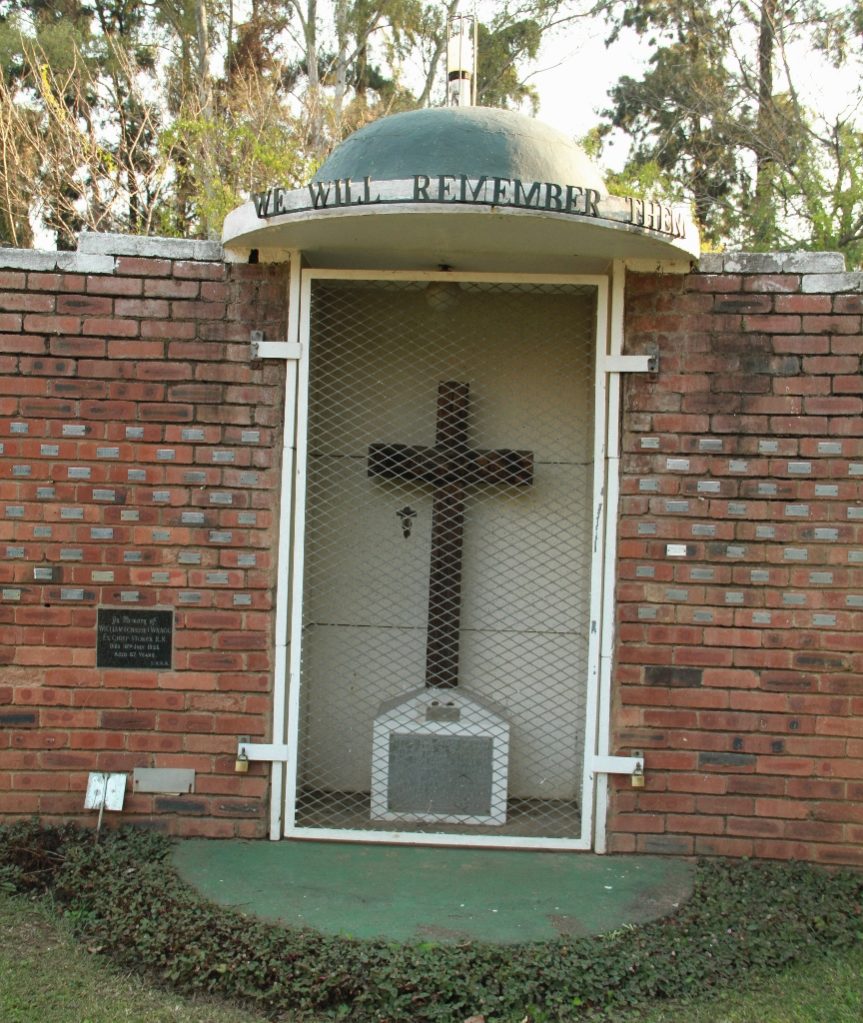Delville Wood has become synonymous for South African courage in the First World War and has been described by soldier and military historian, Basil Liddell-Hart, as the bloodiest battle hell of 1916.
It was part of the Somme offensive and South Africa’s first major engagement on the Western Front. Soldiers from four battalions suffered casualties of catastrophic proportions.
They’d been ordered to hold Bois d’Elville, which lay to the north-east of the town of Longueval, because the Allies needed it to gain a tactical advantage over the Germans.

For five days from July 14, 1916, 3,153 soldiers and officers attached to the First South African Infantry Brigade entered Delville Wood.
Loading...
Showing incredible grit and determination they held on, as ordered, despite being assaulted on all sides by three crack German divisions.
The exact casualty figure is uncertain because soldiers were constantly being replenished, but by the time the South Africans were relieved on July 19, only 142 souls emerged from Delville Wood. It’s estimated that 457 men were killed in action, 120 died of their wounds and 186 were listed as missing, presumed dead.
Nancy Aucock’s father, Charles Sephton, was part of the Transvaal Scottish Regiment, and many of its men fought at Delville Wood.
A 70-something resident of the KwaZulu Natal Midlands, Nancy is fascinated by the history of the battle, perhaps because her father spoke so little about it.
“He would tell a few light-hearted stories, but that was it.”
One of the stories Charles would tell was the origin of his daughter’s name.
Nancy was the Transvaal Scottish’s mascot, a real live Springbok that accompanied troops to Europe, sometimes dressed in a tartan coat. She belonged to a Free State farmer who had volunteered her for war service.
Nancy was taught to respond to regimental calls and proudly led battalions on parade. She was the darling of the troops and after her death from pneumonia in Belgium, in 1918, Nancy was accorded full funeral honors and buried in an Allied war cemetery.
Her skin and head were preserved and after the war she was stuffed and mounted. Today, Nancy is on display at the Military Museum in Johannesburg.
Sephton didn’t keep a diary himself, but his best friend and fellow soldier Tom Leppan did. It was published in the ‘Barkly East Reporter’ in 1977 and gives some indication of the stark reality of Delville Wood.

“Terrible shelling all day. Helped the stretcher-bearers all day. Awful work carrying through this wood… dead and wounded everywhere. This wood is an abattoir and the Longueval village too. Our men beat off several German attacks during the day and one in the night. Les Webster killed by a shell while asleep… killed outright. The very best of men, quiet and plucky… Sephton and self twice half covered by earth thrown up by shells… this has been the most awful day of my life,” reads an entry on July 16.
“Rain all night, no sleep. Helped carry Teddy Smith, then collapsed from fatigue, nervous breakdown. Dudley Pringle sent away with shellshock yesterday, a total wreck… All the South African regiments losing terribly today… Praying for relieving regiments… Solly Barker wounded through the hand and sent to the rear,” Leppan wrote the next day.
The horror continued on July 18.
“The most violent bombardments with whizz bang all day and four hours with heavy guns. Our trench blown to blazes… Tilby killed in my dugout. I was twice hit by shell pieces… only bruised. We were completely surrounded by night and got into trench with 3rd Regiment to help defend frontline. Beat off attack.”
Sephton and Leppan were captured the following day.
“Surrendered at daylight. Managed to carry all our wounded along with us. All wounded left at German dressing station to be attended to… we are being decently treated. All our possessions taken away… about 230 South Africans… 45 South African Scots. About 500 prisoners here all told.”
They spent the remainder of the war interned in a German prison camp.
“Left for Germany in trucks with seats… crossed the Rhine and saw many burned villages in Belgium.”
In November, 1918, Sephton and Leppan returned to England and got the last troop ship to Cape Town. After being demobilized, Charles caught a train home to Barkly East, in the north-eastern Cape, where his parents farmed.
After several days, his journey ended at a remote railway siding called New England Station, where he borrowed a horse and rode home. He’d been gone five years and witnessed unspeakable horrors.
In his farming notes from that day, his father, Alfred, had jotted down details of his livestock and noted the weather. And then, almost as an afterthought: “Charles returned home from Europe today”.
In 2016, Aucock, her sisters, her children and grandchildren plan to visit Deville Wood on what will be the centenary of this epic battle. Today, it is a burial site and the eternal resting place for the more than 5,000 men killed there, two thirds of them unknown.
Once a thick tangle of oak and birch trees; Delville Wood was a desolate wasteland after the battle. Shells had slammed into trees at a rate of 400 per minute, reducing them to shredded stumps. Mud and rainwater covered the bodies of South African and German forces alike.
Delville Wood was bought by the South African Government in 1920, at the instigation of Sir Percy Fitzpatrick, pioneer, politician and author of Jock of the Bushveld. Percy’s other noteworthy suggestion was the minute’s silence that is still commemorated on November 11 each year.
Acorns were germinated on a farm in Franschhoek, around 75 kilometers from Cape Town, and sent to France to replant Delville Wood. Ninety odd years on, two double rows of mature oaks lead solemnly to the Herbert Baker Memorial Arch, which carries the inscription: “Their ideal is our legacy; their sacrifice our inspiration”.
It’s a small corner of France that is forever South Africa.
Loading...
